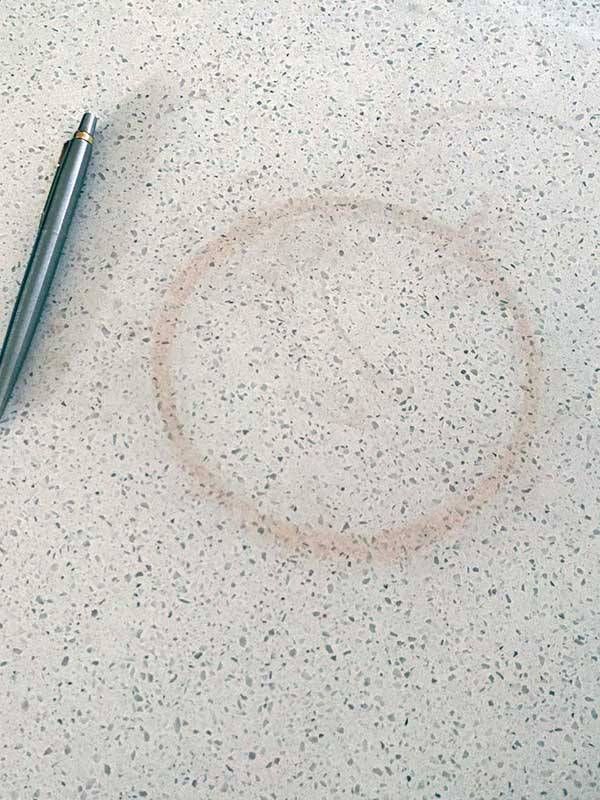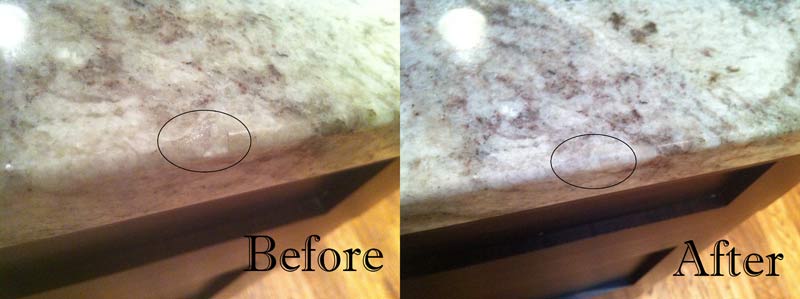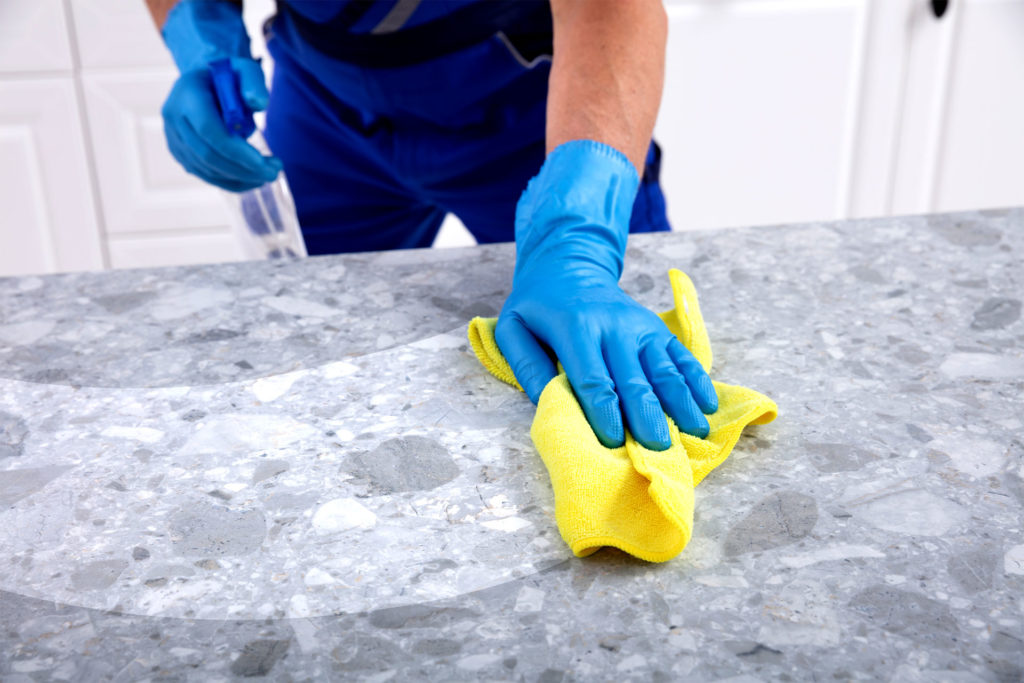We will be discussing man-made Quartz slab versus Granite in this article.
This post is in response to our previously released post “Granite Versus Quartzite” released on June 16th.
Many questions are coming up regarding Quartz countertop material and actual Quartzite stone. Quartz slab countertop is a manmade material manufactured using ground up aggregate of Quartz and bound together using resin. Quartzite stone is natural quarried slab just like Granite.
Do you have a burning desire for new countertops but can’t decide between granite and quartz?
It may seem like an impossible choice. After all, both come in a gorgeous selection of colors and patterns and both make an incredibly durable work surfaces. However, if you talk to the real experts, the fabricators, most will be quick to tell you granite is a better choice than quartz.
1. Granite is More Durable Than Quartz
While it’s true that both are durable, it depends on the kind of abuse you throw at the two materials.
Do you cook or bake in your kitchen or is it more of a gathering place?
Most of us do cook in our new kitchens and on a daily basis we are cutting, handling hot pots and pans, moving heavy mixing bowls, and using small appliances like stand mixers and crockpots. You need to compare how each material holds up to accidents and flat out abuse. Both countertop materials have pros and cons.
2. Quartz Will Literally Burn Under a Hot Pot
Granite is formed in intense heat and is naturally impervious to high temperatures. Hot pots and pans won’t damage the surface, though they may damage any sealant on them.

Quartz, on the other hand, isn’t nearly as heat resistant. Even Silestone, the best selling engineered stone manufacturer in the world tells you to NEVER place hot objects on their products.
This quote: “It is always recommended to use a hot pad or trivet when placing hot objects on the surface” comes directly from their website.
The resins used to give it flexibility and shape will warp and melt under high temperatures. Low quality brands have been known to discolor under crock pots and electric skillets, so if you want put hot pans directly on the counter, cross quartz off your list.
3. Quartz Scratches Easier Than Granite
The same resin that makes Quartz susceptible to damage from heat also makes it more likely to scratch.
While it’s not easily scratched under normal use, it’s definitely more likely than granite to see scratches from dropped pans or slipping knives.
Granite, the tough, rugged stone that it is, can handle you cutting vegetable directly on its’ surface. It’s so durable that it will actually dull your knives so invest in a good wood cutting board. Best Granite For Less provides granite cutting boards made from you remnant granite slab material for free.
4. Granite Chips Can Easily Be Repaired

Accidents happen–dishes fall out of cabinets, kids drop things on countertops, adults aren’t much better. I’m sure if you have a heavy handed man in the house you hear things happening in the kitchen that make you cringe. (That would be me…)
If you drop a heavy pot on Granite or whack a corner with a heavy ceramic bowl, it’s more likely to chip than quartz. The problem is that those chips are hard to repair, but granite is fairly easy to fix and you can probably DIY. If you need any repair help Best Granite For Less is here to lend a hand just give us a quick call and we can advise you on the situation 954-420-3134.
Smaller chips and dings are simple to fix now a days, they sell granite repair kits at nearly every big box home improvement store. You can use similar kits with quartz but the repairs are usually more noticeable and hard to polish out.
5. Granite is Easy to Maintain
If granite has a weakness, it’s the fact that it is susceptible to stains because of its composition. Because it’s a natural stone some varieties can be porous, and stains can be a real possibility unless you take 10 minutes out of your day to seal it once or twice a year.

Because of the man-made resin that is used to glue quartz together it is non-porous, so it’s stain resistant (not stain proof) and super-low maintenance.
Before you assume that this makes quartz superior to granite, consider the very reason it’s non-porous. Remember how it’s made of a resin-stone mix? The same resin that makes it low maintenance also increases its risk of damage and discoloration from the heat of your pots and pans.
Maybe you think that the ratio of resin to natural stone is trivial? Consider this.
The manufacturers claim their slabs contain about 7% resin. What they don’t explain is that the ratio is by weight. The actual volume of resin makes up about 30% to 40% of the finished product. It’s almost appropriate to call them resin countertops instead of quartz.
Sure, sealing your Granite countertop a couple of times per year is work, but a melted countertop from forgetting to use a trivet under a hot pan is a nightmare.
6. Granite is Cheaper Then Quartz
This is probably the first thing most people consider when choosing their countertop.
The final cost of countertops will depend on several factors, but generally, granite countertops cost $40-50 per square foot including installation. Quartz ranges from $50-75 per square foot installed. This difference can really add up if you have a big kitchen. Also consider specially made colors need to be custom manufactured so the cost can be prohibitive form most design experts.
7. Granite is More Environmentally Friendly
At first glance, quartz may seem more environmentally friendly because it can be engineered and manufactured close to where it will be sold. The manufacturing plants also love to boast about how they use recycled materials as well as how they conserve water.
However, both have to be quarried from somewhere–sometimes in the US, but usually overseas–so they are both expending the same amount of energy and resources to get into your kitchen.
Beyond this, quartz requires extra energy and resources since the stone is crushed and non-organic resins are added to basically glue the crushed pieces of stone together.
Granite is literally formed by Mother Nature, cut out of the ground in big blocks, sawn into slabs, and then polished to a shiny surface. It doesn’t get more natural than that. Plus you can’t really replicate the beauty of natural stone with a manmade product.
8. Quartz Expels Less Radon
You may have heard that granite is dangerous to use in countertops because it emits radon gas. Radon is a colorless and odorless radioactive gas that is produced by the breakdown of decaying uranium.
Why do people think radon is in their countertop?
Because it has trace amounts of radioactive materials in it–but so does the soil your home sits on and many other naturally occurring objects like stone and sand in your homes foundation.
The fact is that there is such a minute amount of radioactive material that it poses no threat to people. Even if radon gas is released as the radioactive materials in the stone decay, the released gas mixes with the regular air and is diluted to such weak levels that it poses no threat to people.
Of course, that’s not to say that radon gas isn’t a real problem–it can be, especially if you have cracks in your home’s foundation and holes in your home’s structure that are near the ground. However, radon from granite? There’s just not enough gas expelled to become problematic.
9. Quartz Fades In Sunlight
Very few shades of granite will fade when left in direct sunlight for extended periods of time. This is why stone slabs are often stored outdoors in direct sunlight.
Quartz, however, fades noticeably in as little as a few weeks of direct sunlight, especially the darker colors. Do not place Quartz outdoors in direct UV sunlight or places with UV lighting. If you have a lot of direct sunlight in your kitchen, you should avoid it.
10. Granite Offers More Color Choices
Don’t be fooled by the 10 different options available at Home Depot and Lowes. Head to your local stone yard or even better come in to Best Granite For Less. We are open to the public (following social distancing guidelines) and will literally have hundreds of slabs for you to choose from.
To make matters worse, most stone yards keep very few slabs of quartz in stock. They tend to just have samples for customers to view and choose from. This is a flat out terrible way to pick a countertop because samples don’t necessarily give you a true idea of how the finished product will look.
For granite, you’ll find lots of full slabs to choose from and you can see exactly how your countertops will look because you choose the exact slab and not just a sample. You’ll be able to compare the intricate patterns and subtle color differences before you ever have your countertops designed. If you can’t find exactly what you want the professionals at Best Granite For Less will go the extra mile to find it for you and make sure you are 100% satisfied with your final selection.
Are quartz and granite the only options you’ll consider? We recommend Quartzite as a great alternative as it is a naturally occurring quarried stone with similar propertied to Granite. See our post Granite Versus Quartzite for more details.
Would you like to design an elegant kitchen that fits your budget?
We are here for you. We can discuss all of the possibilities with you, help you select the perfect materials from our extensive available inventory. Best Granite For Less, it’s our name and we stand by it.
Call today to schedule your custom installation. To get your Free sink use Promo Code: GETMYSINK when calling.
954-420-3134
